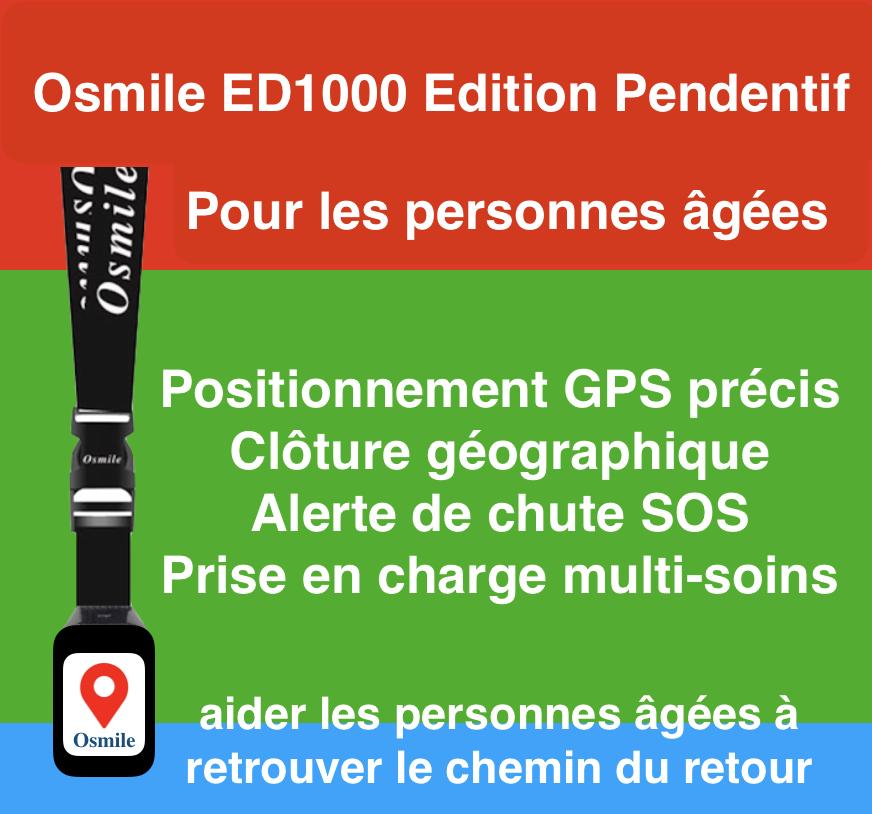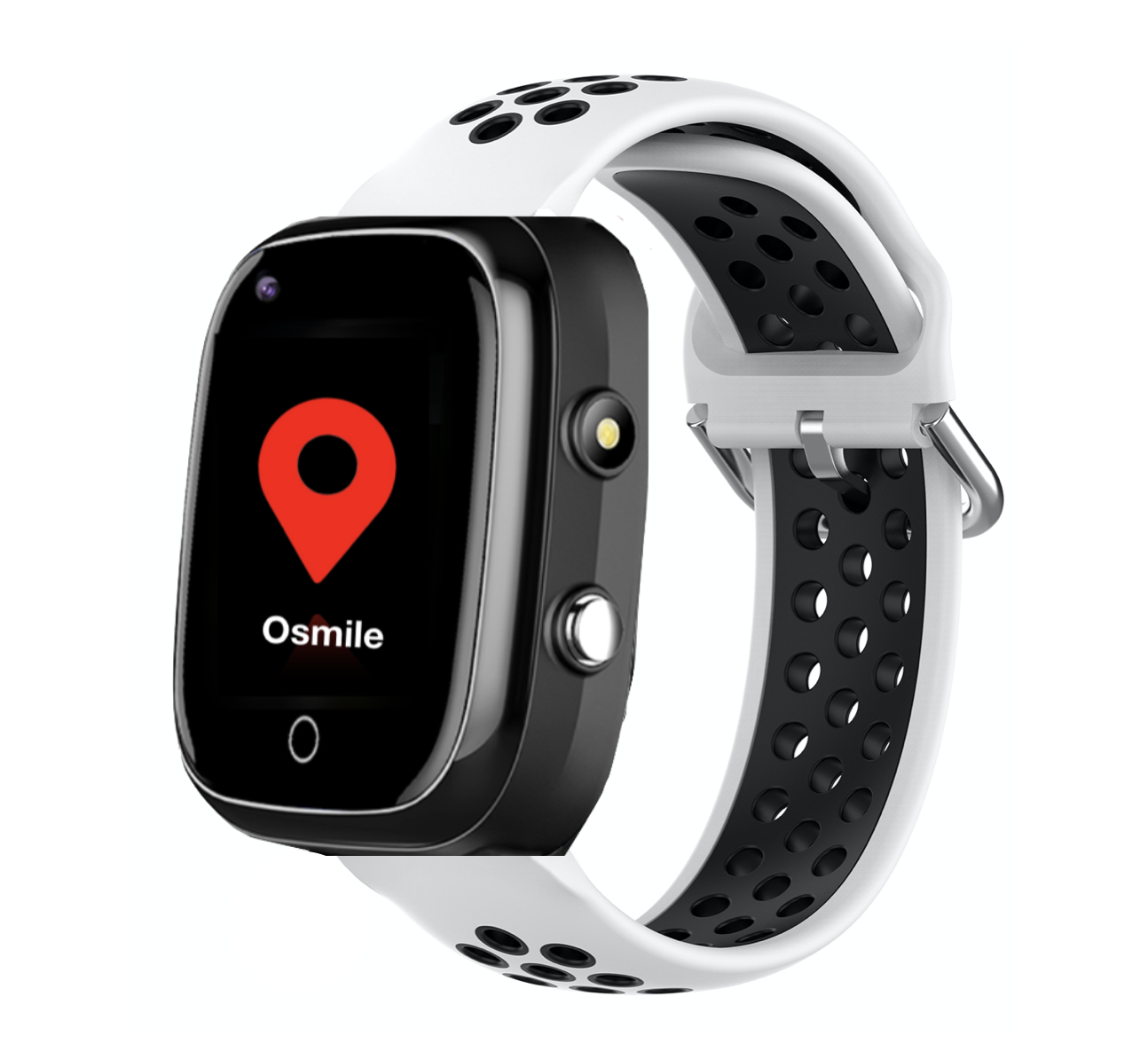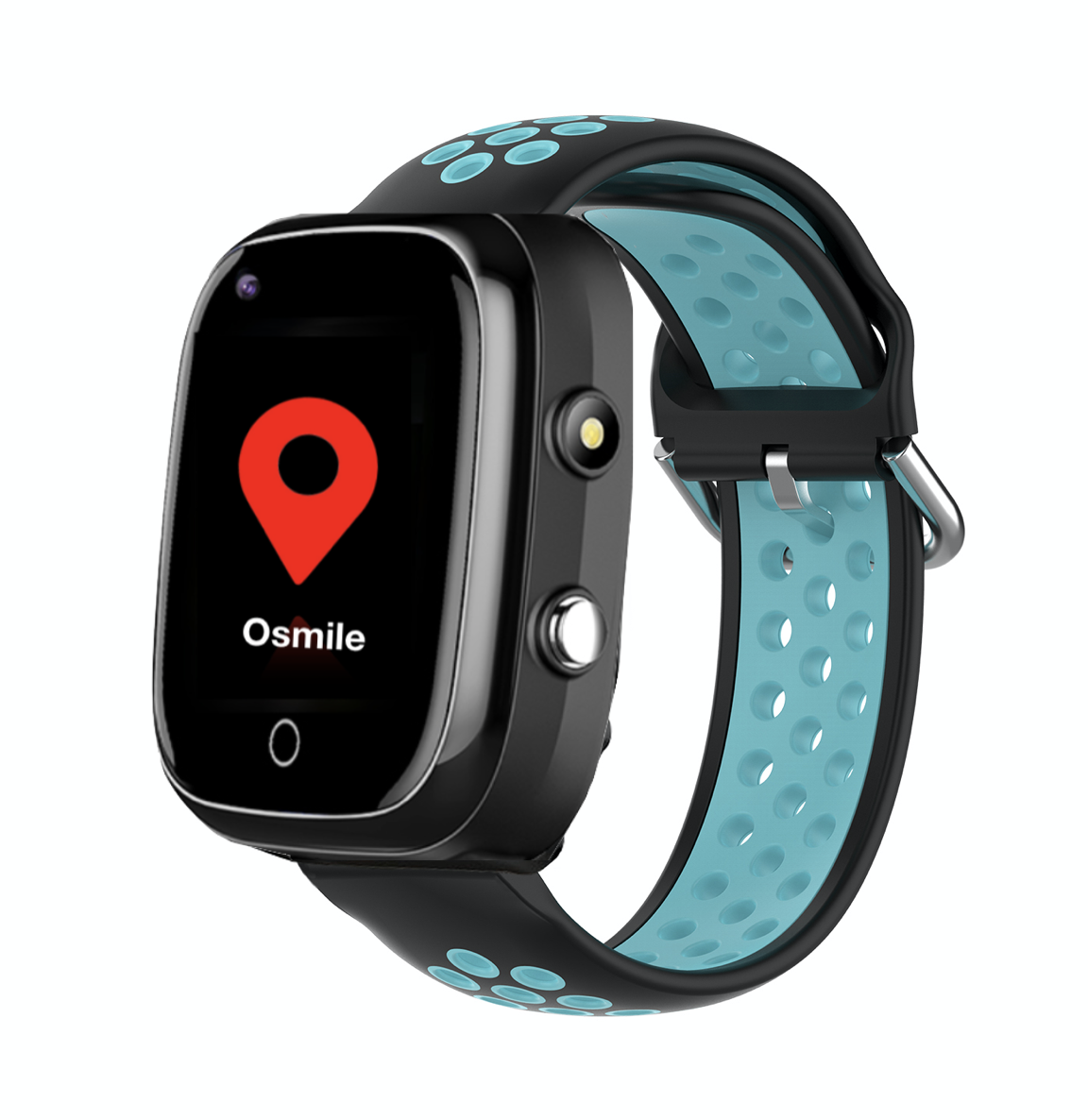GPS Tracker Elderly Anti-Lost Watch
Osmile ED1000 - Senior Dementia & Alzheimer GPS tracker Pendant
Prix d’origine €
300 EUR
Prix spécial € 249
EUR
1. 4G/5G Phone/Video call
2. SOS emergency button
3. Precise GPS Positioning
4. Remote Picture taking & Listening
5. Remote healthcare data monitoring (Heart Rate, Blood Pressure, Blood Oxygen)
6. Support multiple guardians
Reminder: Osmile ED1000 support 4G or 5G network to function, which means customer should prepare a 4G/5G Nano SIM card with data plan (200MB required).
Osmile ED1000 could also be purchaed at amazon us, and amazon jp, we are also launching the amazon prime video soon
Worldwide DHL free shipping! ( You can received order parcel in less than 4 days)
Overseas customer enjoy 14 days full refund ( Non-artificial damage )
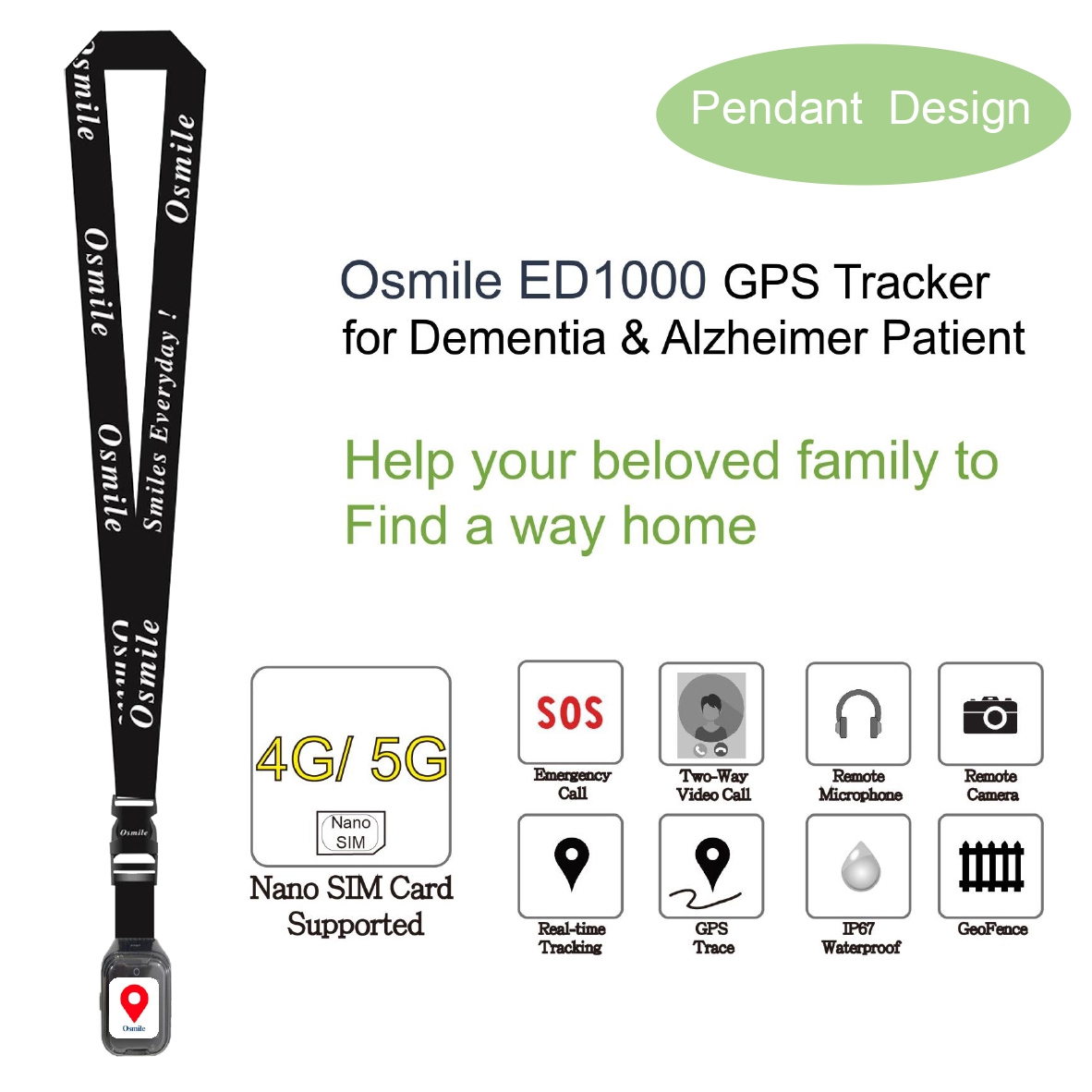
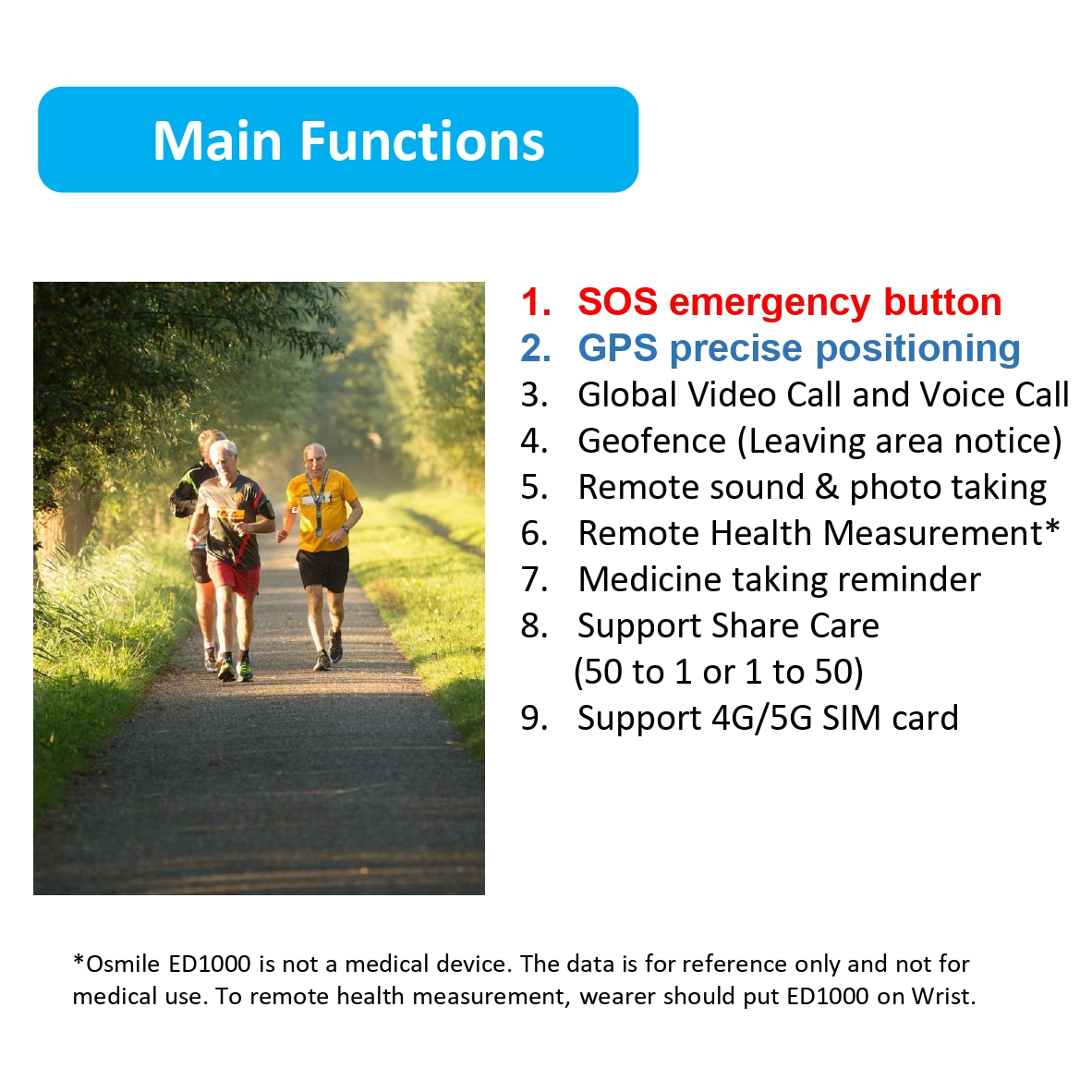
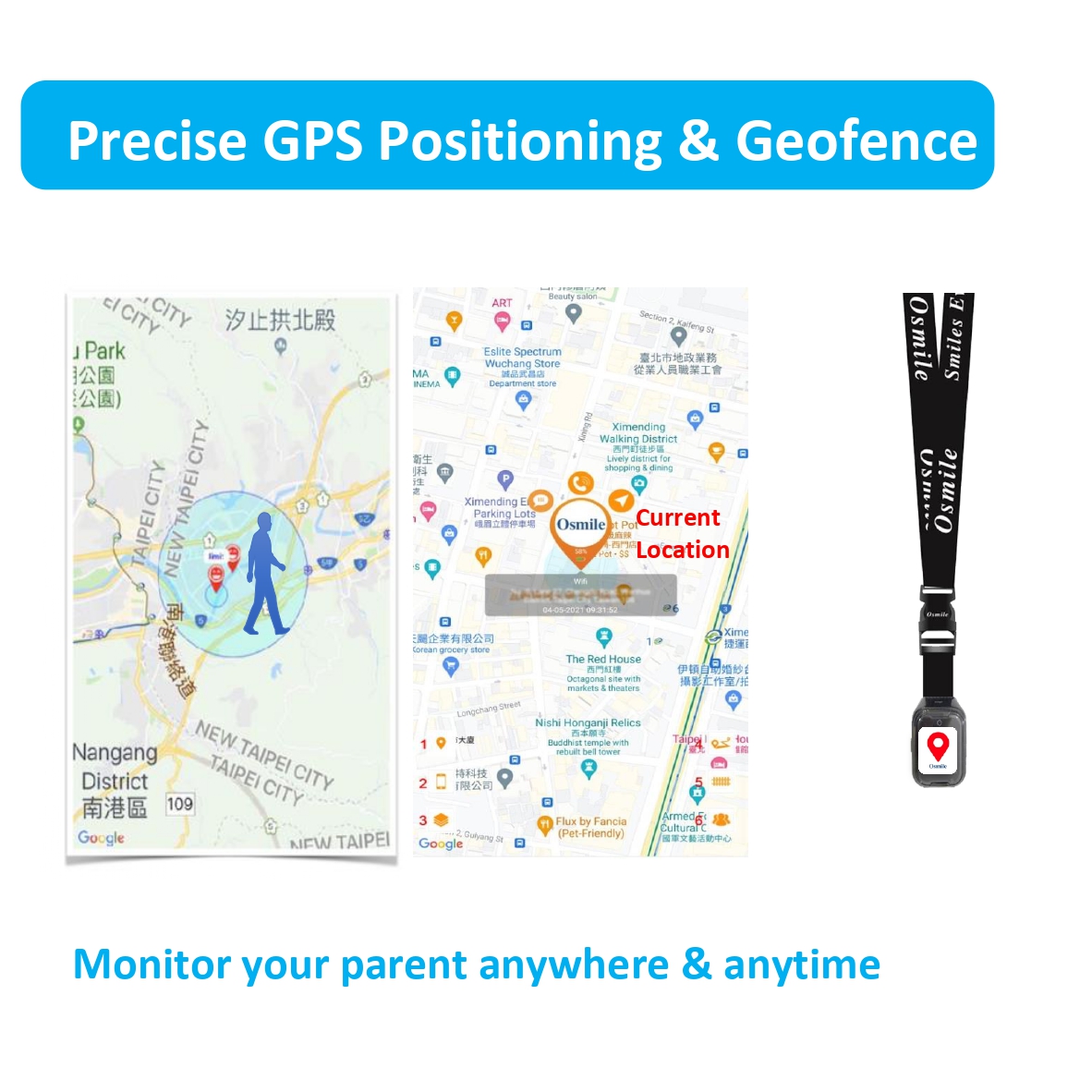
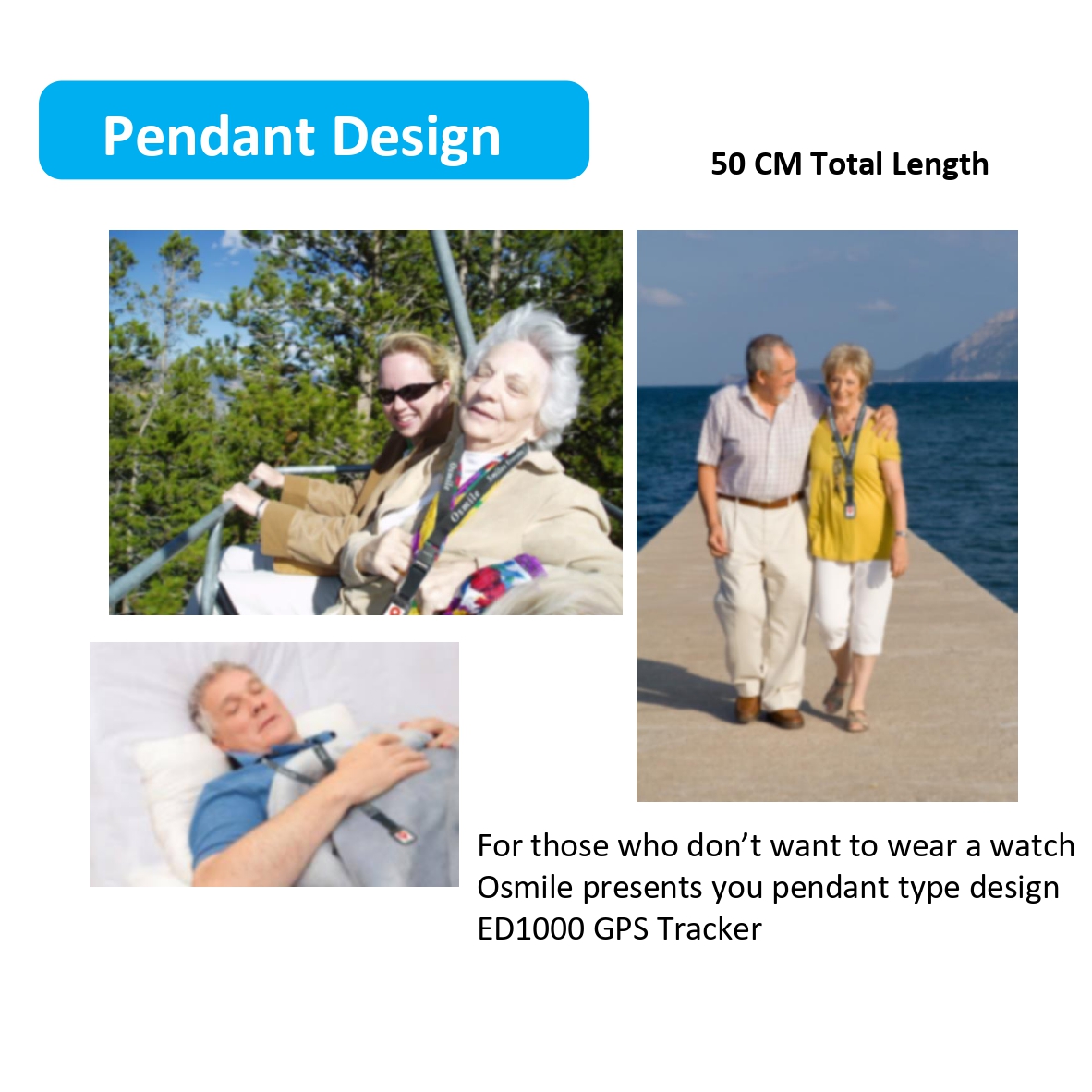
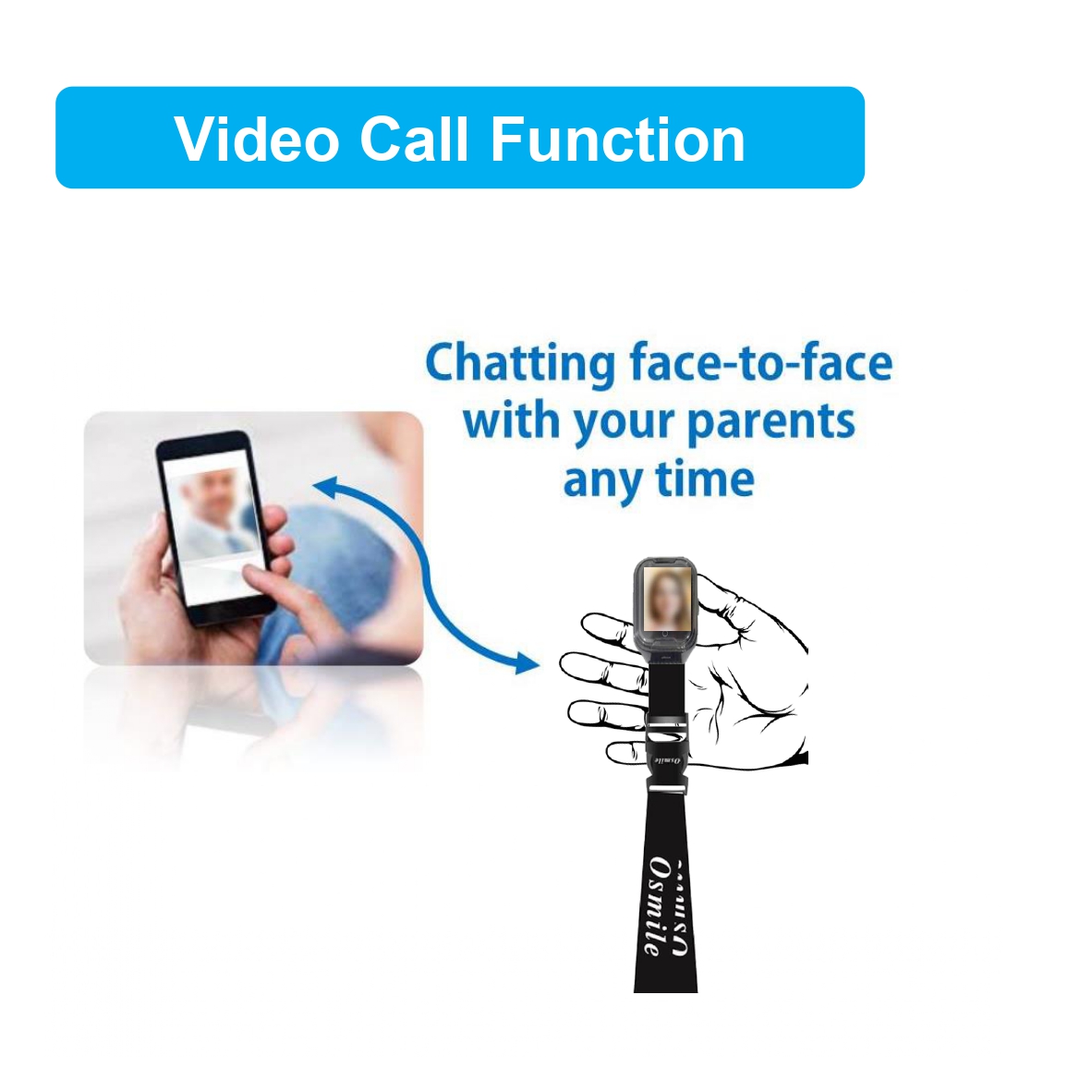
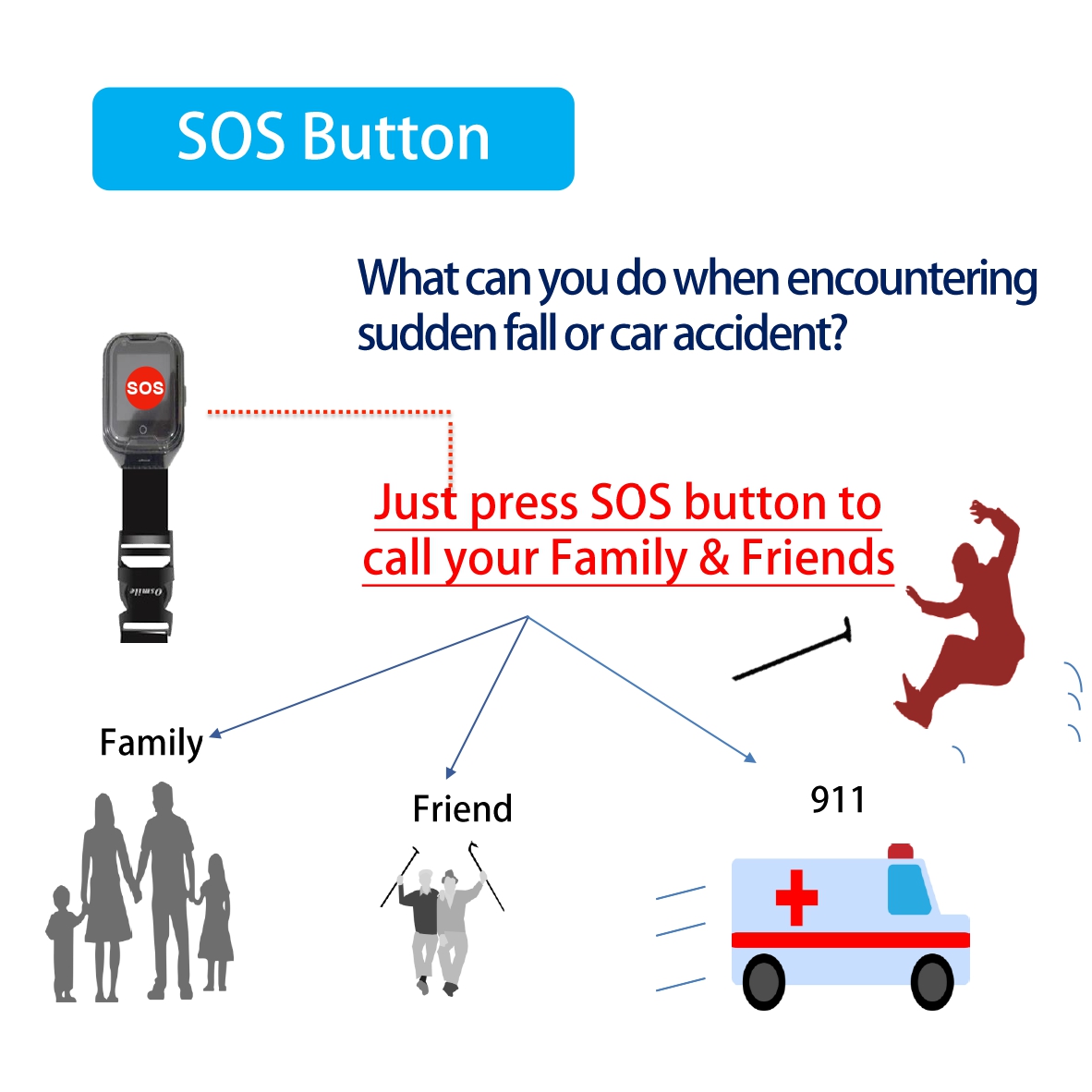
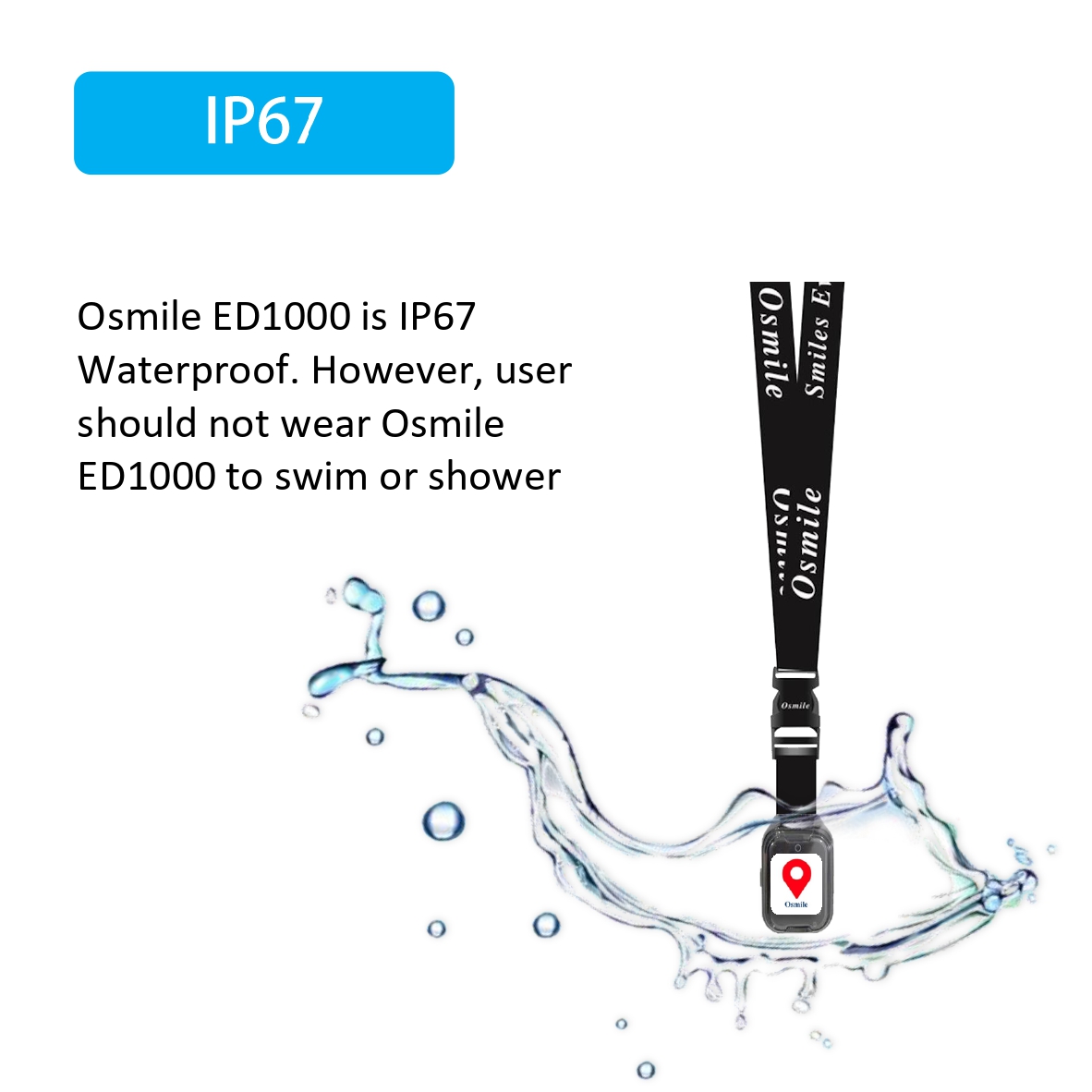
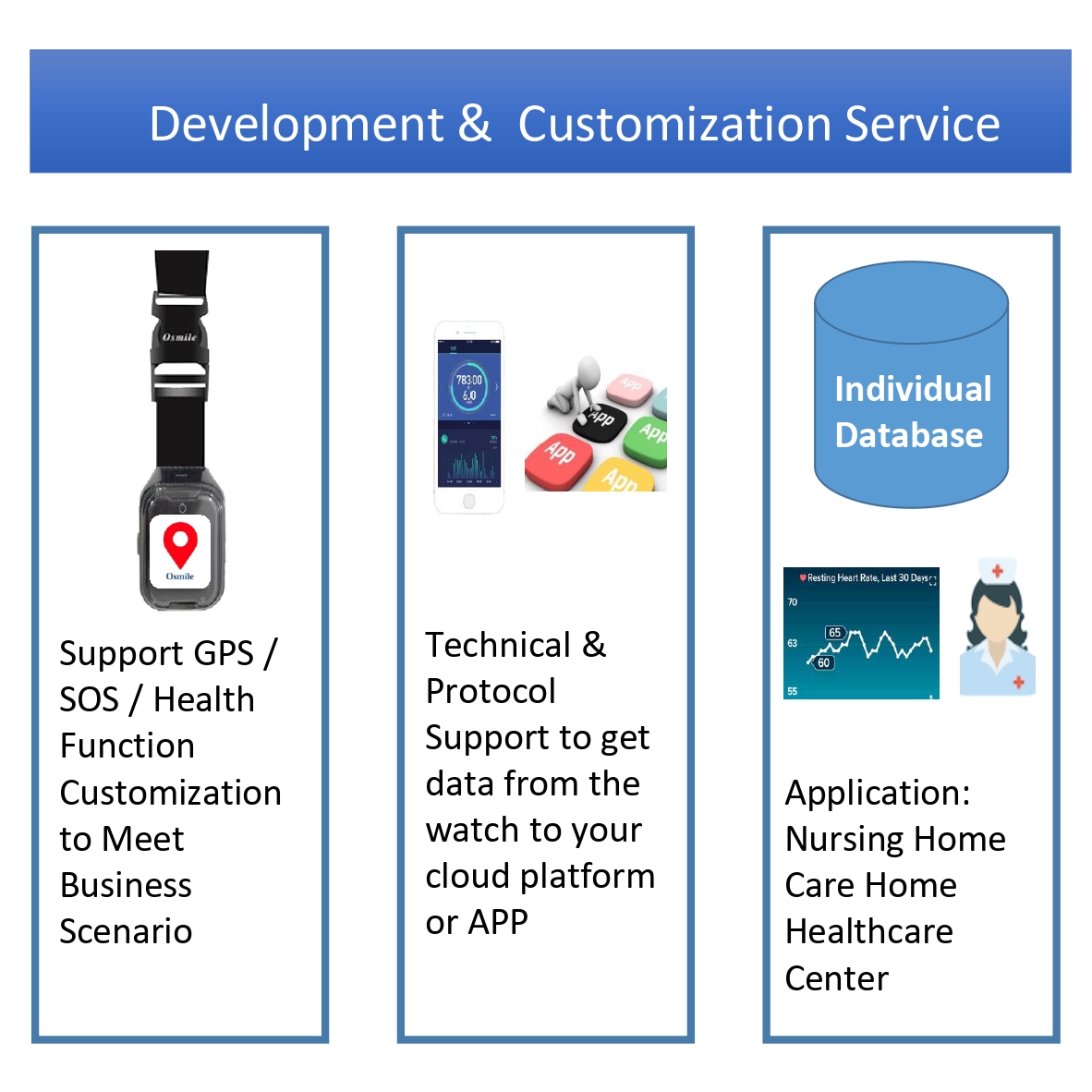

Osmile ED1000 - Dementia & Alzheimer GPS tracker Pendant
4G/5G Phone call, SOS emergency button, Precise GPS Positioning
Reminder: Osmile ED1000 support 4G or 5G network to function, which means customer should prepare a 4G/5G Nano SIM card with data plan (200MB required).
Osmile ED1000 GPS tracker Health Management Functions:
1. Heart rate monitoring
2. Take Medicine Reminder
3. Blood Pressure monitoring
4. Sedentary
5. Sleep
6. Steps
Osmile ED1000 GPS watch is not medical device, should not use for medical purposes. All data derived are only for reference.
Osmile ED1000 GPS watch pendant Other Functions:
1. Social Medical Communication: Facebook Messenger, WhatsAPP, Line, etc
2. Find watch function
3. Alarm Clock
4. Phone Book
5. Multi-language support : Chinese/ Danish/ Dutch/ English/ French/
German/ Greek/ Hindi/ Hungarian/ Indonesian/ Italian/ Malay/ Pilipino/ Polish/ Portuguese/ Russian/ Spanish/ Swedish/ Thai/ Turkish/ Vietnamese
Osmile ED1000 GPS Watch Pendant Edition Spec:
Model:Osmile ED1000 Pendant Edition
Wireless transmission:4G/5G Nano SIM Card
System requirement:Android 4.4 & above ; IOS 9.0 & above
CPU : SP9820E
Screen Size : IPS 1.4’
Resolution:240 * 240 pixel
Touch:Capacitive touch
Screen : IPS touch screen
Camera:3.0 mp
GPS Sensitivity : - 159 dBm
Battery Capacity:650 mAh Lithium Battery
Voltage:5V
Charging method:Magnetic USB Charging
Charging time:2.5 hours
Operating time:Around 3 days
Watch material:ABS + PC
Watch Body:25.7 * 4.1 * 1.5 cm
Watch weight:53g
Length : 50cm
Waterproof Level:IP67 (not support hot shower and swim)
Warranty:12 months (Not including artificial damage)
Customer service:Provide watch installation service
Remarks:
Osmile ED1000 GPS tracker keyring, needs to be charge once in 3 weeks, when it is not in use.
Osmile ED1000 dementia GPS tracker keyring, not support hot shower, or swimming.
Disclaimer:
Osmile ED1000 is only a smart GPS Tracker Keyring help to increase the efficiency and safety of the patient. The responsibility of the patient safety, still lies on Family. Osmile company does not be responsible for any legal issue related SOS dial out or GPS function failure. Customer should be aware that SOS dialing out and GPS function may not succeed for when factors like 4G/5G signal is too weak or no signal, due to human or telecom company’s operation error, etc.
Osmile Technology Co., Ltd
B2B professional cloud health analysis, and GPS tracker manufacturer
Customize: Hospital, Heath Centre, Care Home, Cloud GPS Tracker Keyring
What is Alzheimer’s disease?
Alzheimer's disease is a progressive neurologic disorder that causes the brain to shrink (atrophy) and brain cells to die. Alzheimer's disease is the most common cause of dementia — a continuous decline in thinking, behavioral and social skills that affects a person's ability to function independently.
Approximately 5.8 million people in the United States age 65 and older live with Alzheimer's disease. Of those, 80% are 75 years old and older. Out of the approximately 50 million people worldwide with dementia, between 60% and 70% are estimated to have Alzheimer's disease.
The early signs of the disease include forgetting recent events or conversations. As the disease progresses, a person with Alzheimer's disease will develop severe memory impairment and lose the ability to carry out everyday tasks.
Medications may temporarily improve or slow progression of symptoms. These treatments can sometimes help people with Alzheimer's disease maximize function and maintain independence for a time. Different programs and services can help support people with Alzheimer's disease and their caregivers.
There is no treatment that cures Alzheimer's disease or alters the disease process in the brain. In advanced stages of the disease, complications from severe loss of brain function — such as dehydration, malnutrition or infection — result in death.
Approximately 5.8 million people in the United States age 65 and older live with Alzheimer's disease. Of those, 80% are 75 years old and older. Out of the approximately 50 million people worldwide with dementia, between 60% and 70% are estimated to have Alzheimer's disease.
The early signs of the disease include forgetting recent events or conversations. As the disease progresses, a person with Alzheimer's disease will develop severe memory impairment and lose the ability to carry out everyday tasks.
Medications may temporarily improve or slow progression of symptoms. These treatments can sometimes help people with Alzheimer's disease maximize function and maintain independence for a time. Different programs and services can help support people with Alzheimer's disease and their caregivers.
There is no treatment that cures Alzheimer's disease or alters the disease process in the brain. In advanced stages of the disease, complications from severe loss of brain function — such as dehydration, malnutrition or infection — result in death.
Symptoms
Memory loss is the key symptom of Alzheimer's disease. Early signs include difficulty remembering recent events or conversations. As the disease progresses, memory impairments worsen and other symptoms develop.
At first, a person with Alzheimer's disease may be aware of having difficulty remembering things and organizing thoughts. A family member or friend may be more likely to notice how the symptoms worsen.
Brain changes associated with Alzheimer's disease lead to growing trouble with:
Memory
Everyone has occasional memory lapses, but the memory loss associated with Alzheimer's disease persists and worsens, affecting the ability to function at work or at home.
People with Alzheimer's may:
- Repeat statements and questions over and over
- Forget conversations, appointments or events, and not remember them later
- Routinely misplace possessions, often putting them in illogical locations
- Get lost in familiar places
- Eventually forget the names of family members and everyday objects
- Have trouble finding the right words to identify objects, express thoughts or take part in conversations
Thinking and reasoning
Alzheimer's disease causes difficulty concentrating and thinking, especially about abstract concepts such as numbers.
Multitasking is especially difficult, and it may be challenging to manage finances, balance checkbooks and pay bills on time. Eventually, a person with Alzheimer's may be unable to recognize and deal with numbers.
Making judgments and decisions
Alzheimer's causes a decline in the ability to make reasonable decisions and judgments in everyday situations. For example, a person may make poor or uncharacteristic choices in social interactions or wear clothes that are inappropriate for the weather. It may be more difficult to respond effectively to everyday problems, such as food burning on the stove or unexpected driving situations.
Planning and performing familiar tasks
Once-routine activities that require sequential steps, such as planning and cooking a meal or playing a favorite game, become a struggle as the disease progresses. Eventually, people with advanced Alzheimer's often forget how to perform basic tasks such as dressing and bathing.
Changes in personality and behavior
Brain changes that occur in Alzheimer's disease can affect moods and behaviors. Problems may include the following:
- Depression
- Apathy
- Social withdrawal
- Mood swings
- Distrust in others
- Irritability and aggressiveness
- Changes in sleeping habits
- Wandering
- Loss of inhibitions
- Delusions, such as believing something has been stolen
Preserved skills
Many important skills are preserved for longer periods even while symptoms worsen. Preserved skills may include reading or listening to books, telling stories and reminiscing, singing, listening to music, dancing, drawing, or doing crafts.
These skills may be preserved longer because they are controlled by parts of the brain affected later in the course of the disease.
When to see a doctor
A number of conditions, including treatable conditions, can result in memory loss or other dementia symptoms. If you are concerned about your memory or other thinking skills, talk to your doctor for a thorough assessment and diagnosis.
If you are concerned about thinking skills you observe in a family member or friend, talk about your concerns and ask about going together to a doctor's appointment.
Précédent | Retour à la page précédente | Suivant



